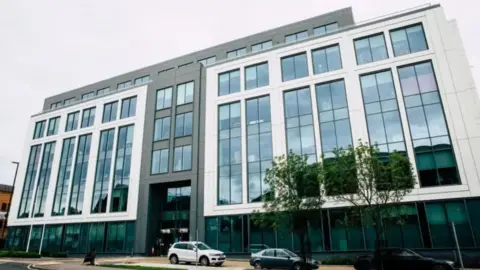'Poverty' warning over low-income council tax rise
 Getty Images
Getty ImagesPlans to cut council tax discounts for the poorest families could be softened after residents warned they "would not be able to afford to eat" if the move went ahead.
Leaders of Slough Borough Council wanted to charge council tax to more than 1,000 families who currently pay nothing.
They originally proposed making unemployed households - who are currently exempt - pay up to 30% of a full bill, an average of £468 a year.
But now they are considering reducing that to 20% after residents warned the changes could "push many, many people deeper into deprivation and poverty".
One person told the council: "Everything is going up in price and there are some months I worry that I cannot survive. This will be added pressure and can see a lot of people going into further debt."
Another said they did not have enough to cover food and bills as it was, whilst another said they would have to live in "extremely cold temperatures" because they would have to reduce their heating.
Current discounts
Slough Borough Council leaders voted in November to consult residents on plans to cut discounts to low-income households receiving council tax support.
The council currently operates a sliding scale of discounts for 6,504 households on low incomes under its council tax support scheme - with 1,019 unemployed people exempt from paying.
But the plans included reducing all discounts, meaning families on the scheme would pay an average of £279 a year. Unemployed people's discount would have been cut from 100% to 70%.
The cash-strapped council said its financial position meant it could not support the current level of discounts, and that current discounts were higher than other councils in Berkshire.
But the majority of the 280 people who responded to the consultation opposed the changes.
The council said a hardship fund for those struggling with the changes this year would double from £175,000 to £350,000. A further £175,000 would be set aside to continue the fund next year.
Council leaders will vote on whether to recommend the changes to the rest of the council at a meeting later.
A meeting of all councillors will then vote on the move on 23 January. If approved, the changes would come in to force in April.
You can follow BBC Berkshire on Facebook, X (Twitter), or Instagram.
